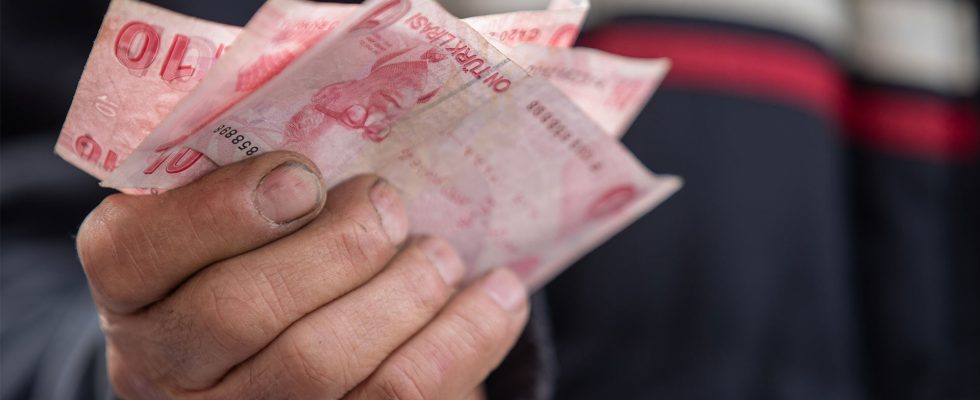Status: 04/19/2023 09:23 a.m
The economic policy of Turkish President Erdogan has massive consequences for the national currency: the lira has slipped to its lowest level since its introduction. His election challenger promises a currency policy based on current teachings.
Barely a month before the presidential and parliamentary elections in Turkey, the national currency slipped to its lowest level so far. Yesterday the exchange rate in New York stood at 19.5996 Turkish lira for one dollar. Since its introduction in January 2005, the new Turkish lira has never been worth so little.
Turkey’s national currency has rapidly depreciated since the end of 2021. The government in Ankara therefore decided to take repeated support measures. However, these “failed”, judged Mike Harris from the consulting firm Cribstone Strategic Macro.
Unorthodox economic policy
Authorities introduced a series of measures to encourage Turks to keep their savings in lira ahead of the election, while urging banks to increase the share of lira deposits.
President Recep Tayyip Erdogan’s unorthodox policies aim to boost exports, production and economic growth by lowering interest rates and tightly controlling credit, foreign exchange and bond markets. Experts believe that the widespread expectation that the lira will depreciate after the elections will cause concern and increase demand for foreign currencies.
Loose monetary policy weakens lira
Although inflation in Turkey has been declining steadily over the past five months, it was still at 50.51 percent yoy in March. Analysts also explain the decline in the inflation rate with statistical effects, including in energy prices. One reason for the high inflation in Turkey is the ongoing weakness of the national currency, the lira, which experts attribute primarily to the loose monetary policy of the Turkish central bank.
In contrast to other large economies, Turkey is not countering the rise in prices by raising key interest rates. In fact, the key interest rate of the Turkish central bank has fallen from 14 to 8.5 percent since August. This happened under pressure from Erdogan. Contrary to prevailing economic theories, the President believes that high interest rates encourage inflation.
Erdogan challenger promises independent central bank
Experts at the US bank JPMorgan expect that the Turkish currency could fall even further after the elections in the coming month – to the exchange rate of 30 Turkish lira to one dollar. They added that even a modest return to orthodox macroeconomic policies, including slower credit growth, less levels of financial repression and some way to restore foreign exchange reserves, “is unlikely to result in capital inflows.” This means that the lira is likely to remain on a longer-term depreciation path.
The hard-fought presidential and parliamentary elections in Turkey on May 14 are likely to have far-reaching economic consequences. Erdogan’s most promising challenger in the presidential election, Kemal Kilicdaroglu, promises that if he wins the election, he will pursue a currency policy based on internationally accepted doctrine and restore the independence of the Turkish central bank.
Turkey’s economic problems are reducing Erdogan’s chances of re-election. In recent polls, Kilicdaroglu has a slight lead over Erdogan.

